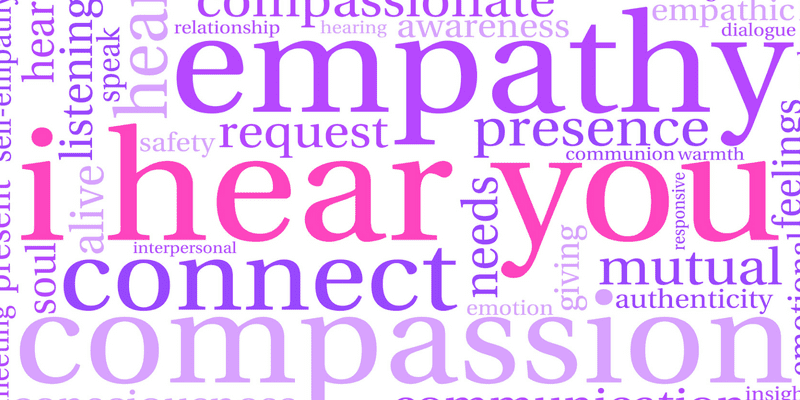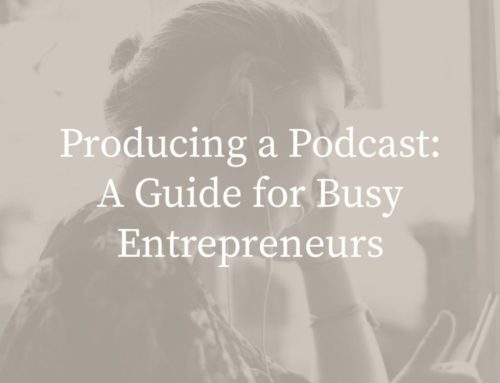Effective communication skills are vital to create deeply fulfilling connections in our personal and professional relationships.
Dare I say communication is the #1 most important skill needed to succeed in your career AND have loving relationships with family, friends, co-workers and clients.
The problem is the more we embrace this sound bite world with 140 character maximums on Twitter and lingo in texts like LOL, the further we get from communication that truly gets across what we really want on a deeper level.
Compassionate Communication, where the person speaking is actually heard and the person receiving the communication is truly listening, is in short supply.
Why do so many people find communication so challenging?

Our sound bite world is further impacted by the fact that we aren’t taught communication skills. School curriculums don’t include how to have fulfilling and supportive relationships. In fact, many of us were taught through our parental and educational role models that our feelings and needs weren’t valued. We learned a communication model that focused on being right or wrong where judgment was the norm instead of how to create the deeply fulfilling connections we all desire.
Over the years, I have learned many communication models that have helped me become a better communicator. Hands down the best model I have found is Nonviolent Communication (NVC) also known as Compassionate Communication developed by Marshall Rosenberg. This model is so versatile and so effective it has been used in families, in business situations and even for conflict resolution between countries at war with each other.
One of my favorite ways to use this simple, yet brilliant NVC model is with self compassion. In my opinion, communication with ourselves is at the heart of all communication. If we can’t speak kindly with ourselves how can we have the capacity to speak kindly and effectively with others?
The Four Steps of NVC
Below are the four steps of NVC along with a fifth step to put all the parts together
Step 1: Observation
The first component of effective communication is to observe what we hear or see without blaming, judging or evaluating. The reason objective observation is so vital is because when we add in our opinions our words can be heard as criticism. This is what leads to a breakdown in connection and communication.
Step 2: Feelings
The second component of effective communication is to express our feelings. We have been taught in our culture to express our thoughts more effectively than our feelings. As a result, many times we aren’t even aware of what we are truly feeling.
This is counter-productive in truly connecting with ourselves as well as connecting with others. Examples of feelings are sadness, anger, frustration, fear.
Step 3: Needs
The third component of effective communication is expressing our needs. So often we ignore our true needs and then get defensive and upset when they aren’t being met. If we can get in touch with our needs and express them both to ourselves and others then our needs can be fulfilled. It is hard to expect others to respect our needs if we don’t know what they are and we don’t honor them ourselves. Examples of universal needs are autonomy, love, empathy and support.
Step 4: Request
This fourth component is the step that gets omitted in so many conversations and leads to misunderstandings. We tend to expect both ourselves and others to know exactly what request would satisfy our underlying need. The clearer and more specific the our request can be the easier it is to carry it out. A request is also best understood when it is done with positive language clearing explaining what you DO desire vs what you DON’T.
Step 5: Putting it all together
Here is an example of how this could play out in an actual dialogue. This simple formula developed by Marshall Rosenberg can easily be used in supportive self talk as well as conversations with individuals and groups.
When I hear/see _______ (observations) I feel ________ (feelings) because I am needing _________ (needs). Would you be willing to _________ (request).
To learn how to integrate NVC into your professional or personal life, contact Jobie Summer for private and group programs. She is also available for keynote speaking and to lead workshops and trainings. Visit www.jobiesummer.com to learn more.

As a former financial advisor, mediator, and practitioner of Nonviolent Communication and Compassionate Listening, Jobie has over 18 years experience in guiding clients to be empowered and establish healthy relationships, communications, and agreements. She believes that effective communication begins with self-compassion and connection. When Jobie was 32 years old, she sold her business as a financial advisor for AIG and dedicated her work to supporting others.




